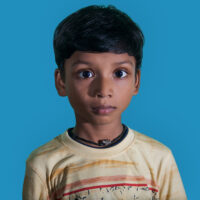Comorbidity
-

Comorbid anxiety disorder has a protective effect in conduct disorder
The presence of comorbid anxiety disorders (ADs) counteracts the effects of conduct disorder (CD) on facial emotion recognition, according to new research by Roxana Short and colleagues.
Read more -

Understanding and working with Tourette Syndrome
In order to view this content, you need to be an ACAMH member. Membership starts from just 11p a day. We hope you consider joining and being part of the advancement of child and adolescent mental health.Read moreCurrent members will need to be registered as a website user and log in, our guide to this simple process can be accessed here.
-

ASD – Autism Spectrum Disorder
Autism Spectrum Disorder (ASD) is a complex developmental disorder that affects how people perceive the world and interact with others. People on the autism spectrum may have difficulties with social communication, social interaction and restricted and repetitive patterns of behaviours, activities or interests.
Read more -

ADHD – Attention-deficit / hyperactivity disorder
ADHD is a behavioural disorder with three key aspects, inattention, hyperactivity, and impulsivity.
Read more -

DLD – Developmental Language Disorder
Developmental language disorder (DLD) is diagnosed when a child’s language skills are persistently below the level expected for the child’s age. In DLD, language deficits occur in the absence of a known biomedical condition, such as autism spectrum disorder or Down syndrome, and interfere with the child’s ability to communicate effectively with other people.
Read more -

Eating Disorders
Eating disorders: an introduction to anorexia nervosa, bulimia nervosa and other eating disorders. From this topic guide, you can find the latest blogs, events, publications, videos and podcasts.
Read more -

OCD – Obsessive Compulsive Disorder
People with Obsessive Compulsive Disorder (OCD) experience unpleasant and intrusive thoughts, images, doubts or urges (called obsessions) and repetitive behaviours (called compulsions). Compulsions are usually carried out as a way of reducing the distress caused by obsessions. OCD takes many different forms and causes distress and interference to day-to-day life.
Read more -

Sleep
Children and adolescents who are experiencing difficulties with their mental health also often struggle with their sleep. Indeed disrupted or altered sleep has been associated with most psychiatric disorders (Gregory & Sadeh, 2016). Although a range of sleep difficulties can co-occur with mental health problems, a common difficulty is insomnia. As such this guidance will primarily focus on difficulties with getting to sleep and staying asleep.
Read more -

Tourette Syndrome
Tourette Syndrome (TS) is a neurological condition that is estimated to effect over 300,000 children and adults in the UK; and one school child in every hundred.
Read more -
